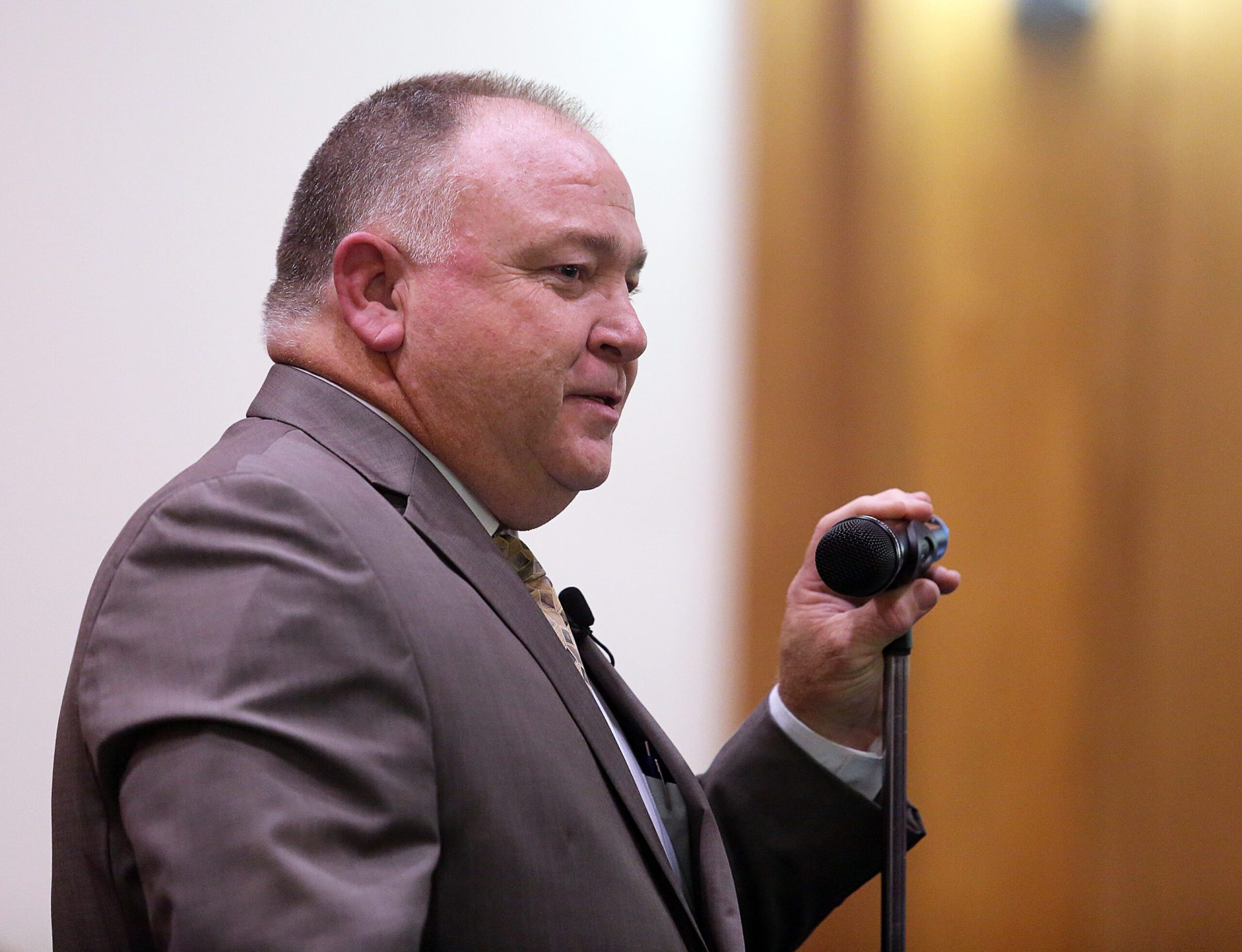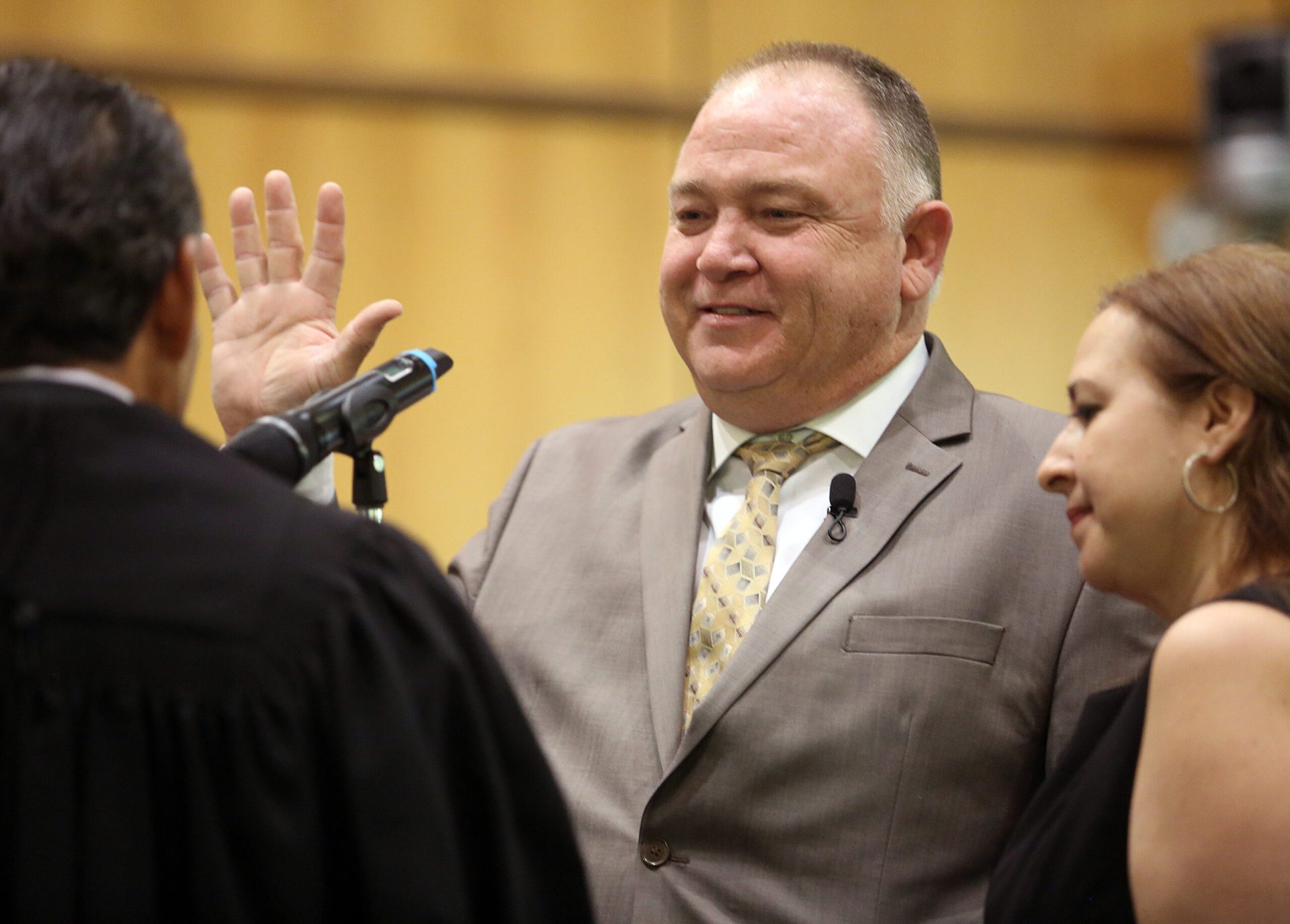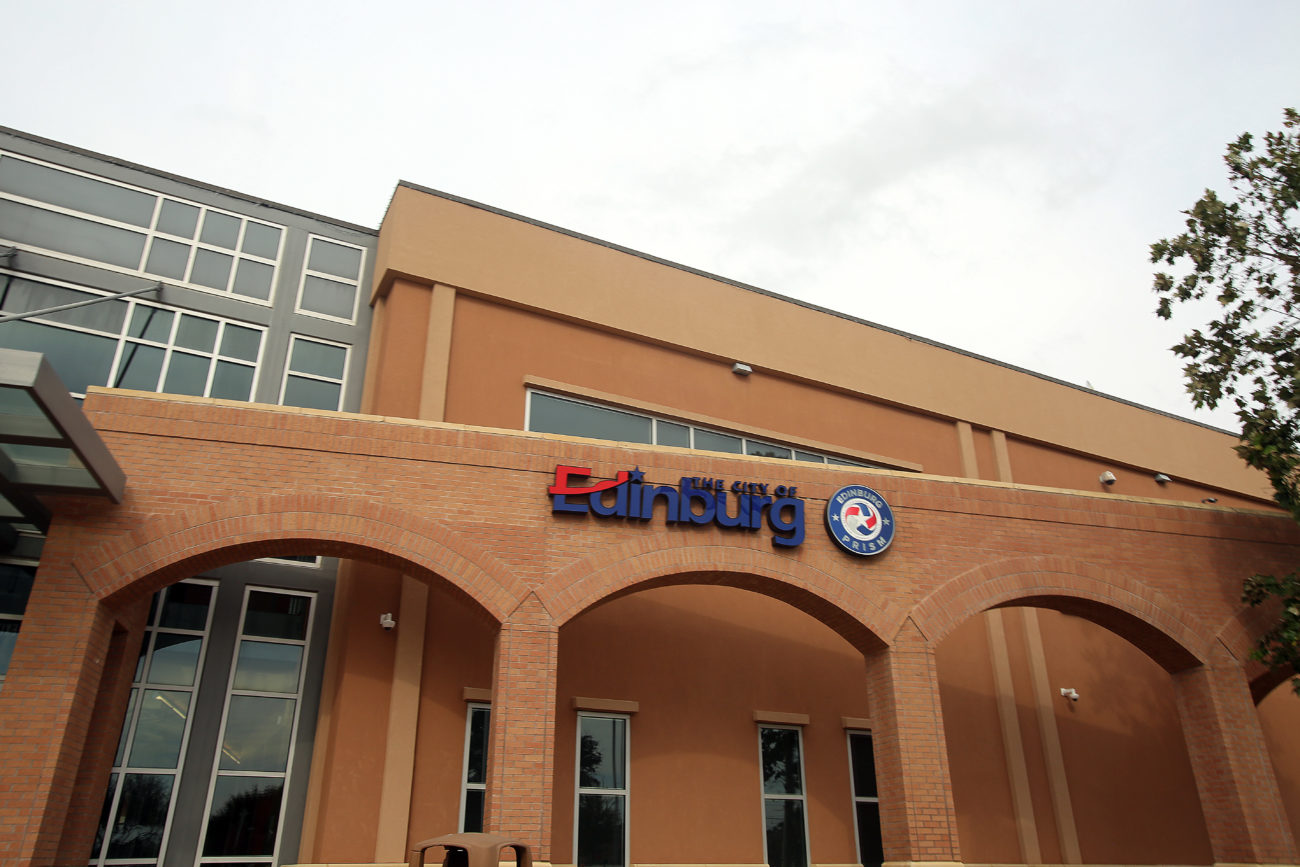|
Only have a minute? Listen instead
Getting your Trinity Audio player ready...
|
EDINBURG — Citing what he says was a judicial overreach, the attorney representing Place 4 Councilman David White vows to appeal the ruling that overturned White’s 10-vote reelection victory in the November 2023 election.
“We respectfully disagree with the judgment,” White’s attorney, Ricardo Gonzalez, said Thursday, less than a week after visiting Senior Judge Jose Manuel Bañales declared White’s opponent, Gerardo “Gerry” Lozano, the true winner of the race.
“We’ve already started the process of filing an appeal and … our claim, or allegation, is that the judge exceeded his discretion in declaring Mr. Lozano as the winner, or the top vote getter,” Gonzalez said.
Bañales handed down the two-page judgment in Lozano’s favor last Friday after a four-day bench trial in the election contest that Lozano filed against the one-term incumbent.
“(T)he number of illegal votes that were cast for Contestee David White exceed Contestee David White’s ten vote margin of victory in said election … (B)y subtracting the illegal votes from the official vote total for David White, Gerardo “Gerry” Lozano obtained more votes than David White,” the judgment reads.
“(T)he court hereby declares Gerardo “Gerry” Lozano, the winner of the November 7, 2023, City of Edinburg, Texas election for City Commissioner (sic) Place 4,” Bañales’ judgment states.
After hearing both live testimony and sworn statements from voters via video deposition, Bañales disqualified approximately two dozen votes in the race.
The judge also declared that a significant portion of those disqualified votes had been cast for White — enough votes to shrink White’s 10-point margin of victory to a 5-point loss.
However, Gonzalez claims that the judge went a step too far in declaring a new winner — beyond even what Lozano and his attorneys had hoped to accomplish, which was simply a chance to redo the election.
“The relief that was being requested by Mr. Lozano through pleadings was that they were saying that they could not determine what the actual outcome of the election was and they were requesting that it be redone,” Gonzalez said.

Nor was Gonzalez the only one who was surprised by the judge’s decision to declare a winner.
“I was really impressed at the results,” said Javier Peña, an Edinburg attorney who sat as an observer through a portion of last week’s trial.
“Typically, what we see if you’re successful in an election contest case (is) you get a new election ordered. You don’t get a … different victor declared,” Peña said.
Peña would know. He’s represented several candidates through election contests.
Most recently, Peña successfully represented Hidalgo County Precinct 3 Commissioner Everardo “Ever” Villarreal in an election contest brought by his challenger, former incumbent Joe Flores.
“We were able to defeat that election contest case prior to even getting to court,” Peña said.
The Edinburg attorney explained how election contest cases usually hinge on disqualifying enough votes to make the outcome unclear, thus necessitating an entirely new election.
Accomplishing anything more than that can be exceedingly difficult, he said.
“That’s why this (case) was so odd. Because, typically, when you win an election contest case, you get a new election because it is difficult to pin down who the illegal voter cast the vote for,” Peña said.
“That’s why I was amazed. Carlos Escobar did an amazing job with this case,” he added, referring to one of the two attorneys representing Lozano.

Peña was not professionally involved in this election contest.
For this case, Escobar teamed up with Gilberto Hinojosa, a Brownsville-based attorney who currently serves as the chair of the Texas Democratic Party.
Together, the pair put on a strong show of evidence to prove the allegations made in Lozano’s complaint — allegations that voters illegally received assistance to cast their ballots, that others falsified the addresses on their voter registration cards, or that voters were otherwise ineligible to participate in the election.
And while Bañales’ two-page judgment not only overturned the election, but declared a different winner, Escobar still wants more to be put on the record ahead of White’s appeal.
To that end, Escobar filed a 15-page proposed order for Bañales’ consideration.
In the document, Escobar is asking the judge to make formal “findings of fact” and “conclusions of law” based on the evidence and outcome of the trial.
“He is in complete control of not only the facts, but also the applications of law in the case,” Escobar said, explaining that Texas Election Code requires an election contest be decided by a state district judge, not a jury.
That judge cannot be an elected official who presides over the same jurisdiction as the contested election. In this case, that meant that elected Hidalgo County judges were automatically precluded from participating.
Escobar is asking the judge to formally declare that he found certain voters illegally received assistance to cast their votes after being transported to the polling place by a very specific group of politiqueras.
In this case, those politiqueras are members of the Palacios family, a prominent family with political influence throughout Hidalgo County.

The proposed order mentions three of the family members by name, sisters Mary Alice Palacios, Julie Carcano and Jane Zamorano.
The document goes on to state that “the sisters” provided rides to some of the voters whose ballots the judge disqualified.
Further, Escobar wants the judge to declare that the sisters acted in concert to sway the voters — including certain ballots that were cast on behalf of people who were mentally incompetent to vote.
“Yolanda Chapa Pulido also testified that she voted for her mentally incompetent daughter… and that she cast (her daughter’s) vote for David White,” the proposed order reads.
“Lorena De Leon also testified that she voted for her mentally incompetent aunt…” the document states.
White’s attorney later agreed that the vote cast by De Leon on behalf of her aunt should be disqualified.
Elsewhere in the proposed order, Escobar describes how at least two other voters whose ballots were disqualified had received special education services as children.
“The conduct employed by the sisters clearly establishes that they sought out mentally challenged and/or mentally incompetent persons to exploit and unlawfully influence to obtain votes for David White,” the document reads.
But Escobar reiterated that the judge does not have to accept all or any of the assertions laid out in the proposed order. And White’s attorneys will have their own opportunity to submit a proposal for legal conclusions.
Meanwhile, Gonzalez, the attorney representing White, says this isn’t the first time he will appeal an election contest decision.
This time around, however, he’s particularly troubled by some of the judge’s decisions to declare who a voter voted for, especially given the testimony offered at trial.
“There were five people that testified, and they testified that they voted for Mr. Lozano,” Gonzalez said. “One person testified that she didn’t recall who she voted for.”
Nonetheless, Bañales first disqualified their votes and then declared that they had voted for White.
“I guess he didn’t believe that they were testifying truthfully and should be taken from the count of Chief White,” Gonzalez said.
As for the roundabout allegations about the political machinations of the Palacios sisters, Gonzalez said some witnesses testified that they know the Palacios family, but not that the sisters had pressured them.
But as for the sisters themselves, “there was no testimony, direct testimony, from any of those ladies,” Gonzalez said.
Nor did Lozano’s attorneys call any of them as witnesses, despite subpoenaing Mary Alice Palacios.
“She was there the first day and they chose not to call her as a witness,” the attorney said.
Gonzalez said his next step will be to file a motion for a new trial, which he expects will be denied. Afterward, he’ll appeal.




